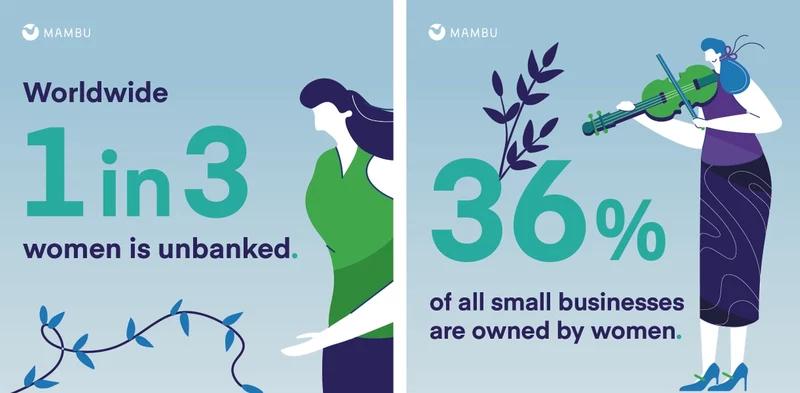According to the World Bank's data, the unbanked cite many barriers, such as lack of necessary documentation, lack of trust, financial institutions being too far away or one family member already owning an account. Yet the most common reason cited is simply not having enough money.
Stubborn gender gap
Women make up 55% of all unbanked adults globally. This gender gap in financial inclusion has remained unchanged since 2011. Every one in three women in the world does not have access to a bank account because of social and cultural constraints.
As the COVID-19 pandemic has shut down economic activities in wealthy and poor countries alike, millions of women found themselves out of work, making matters even worse. The IMF already warned of much slower growth through 2021.

Un(der)banked
Needless to say, financial accessibility is wider than just the unbanked, it also means having access to the basic financial services that most citizens in advanced economies take for granted: a bank account, credit, insurance, and savings.
But is it just for the public sector to solve? As an example, established telcos can draw on their data, resources, customer base and trust from many years of brand recognition. By entering the financial sector, telcos that often have a customer base of dozens or even hundreds of millions can offer e-wallets and consumer loans to those who have a mobile subscription but no bank account. And there are many.
In Indonesia, where 35% of adults have no access to formal financial services, over 75% of Indonesians have a mobile device. The numbers are even more staggering in the Philippines where the mobile penetration is over 100%, while half of the entire population remains unbanked. With the right tech and mindset a lot can be achieved in markets like these. Take Globe Telecom’s Mynt for instance, who recognised the opportunity and has been increasing Filipinos’ access to financial services through mobile money since 2015.
There is no tool for development more effective than women empowerment.
Business owners
Half a century ago, the idea of a female business owner would have seemed ambitious at best. Today, a little over one third of all small businesses worldwide are owned by women, a number that increased 114% in the last two decades.
And they are thriving. Over 69% of female-led campaigns get crowdfunded, while more women-owned unicorns were born in 2019 than ever before.
Every successful business starts with a small idea, which is why it is so important that small business owners get the right access to funding and financial education. Many of our customers, like Grameen America and Kwara, do amazing work supporting business owners and lifting women out of poverty.
Greater participation of women in the economy, will boost the entire economic growth. Financial accessibility plays a big role in inclusive growth and greater equality. People who can access financial services have greater security and better health, and business owners can unleash bigger investments and scale - something we will all benefit from in these uncertain times.
#supportWomen
